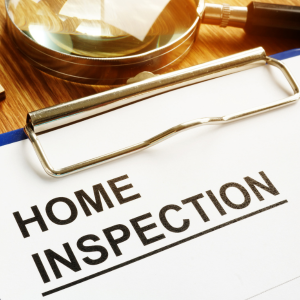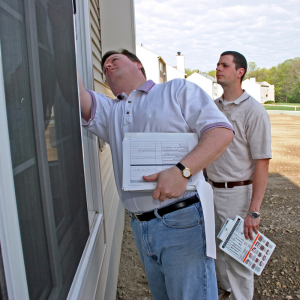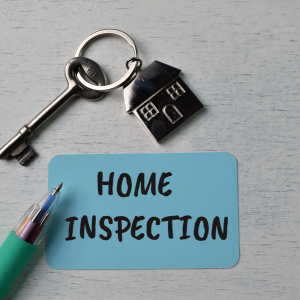
What to Do After a Home Inspection in Texas: Your Essential Guide to Next Steps
Purchasing a home in Texas is a monumental undertaking, and a home inspection is an important step in protecting your investment. But what happens when the inspector puts the clipboard down? Understanding the necessary steps after a home inspection can help you stay informed and prepared to move forward confidently. The time following a home inspection is critical for making informed decisions about the future of your property, from reviewing inspection reports to negotiating repairs and planning. This guide will walk you through the next steps, giving you confidence and clarity as you move forward.
What to Do After a Home Inspection: Essential Steps for Texas Residents
Following a home inspection in Texas, property owners may wonder what to do next. Home inspections are crucial because they reveal issues that could lower the property’s value. Texas residents should plan their next steps when defects are found during inspection. Following a Texas home inspection, follow this guide.
First, read the inspection report carefully. The inspector’s findings and issues are listed in this document. To determine which issues are urgent and which can wait, prioritize them. The inspector may report structural repairs, electrical fixes, or minor cosmetic improvements. Knowing the difference between major and minor repairs aids house maintenance decisions.

After reviewing the inspection report, prioritize repairs and defer others. It is crucial to decide whether to fix these issues yourself or hire a pro. Texas repairs may require a certified professional, so consulting experts is wise. Ask real estate professionals or a trusted agent about required improvements. Knowing which repairs are legal can help you.
Communicating with estate agents can be very helpful. These experts can advise on repairs before selling or renting your home. If you’re selling, repairs after inspection can boost the property’s value. Fixing issues ensures potential tenants’ safety and comfort, following Texas rental laws.
Post-inspection negotiations with buyers are crucial. After home inspection negotiations, buyers may request repairs or concessions to resolve issues. The estate agent guides these discussions. Open communication with buyers helps reach mutually beneficial agreements. Flexible solutions can save time and money during negotiations.
Consider which repairs will attract good tenants if you want to rent rather than sell. Repairs after an inspection can keep tenants happy and prevent costly lawsuits or reparations.
After completing the comprehensive repair list, prioritize it by urgency and feasibility. Include only what fits your budget and timeline. Texas properties have regional issues that may affect your decision. If these decisions are overwhelming, seek professional help. Experts can greatly aid task completion.
An inspection is essential to understanding your home’s condition. Following the guide for addressing defects can enhance property value and ensure long-term satisfaction, whether you live in, sell, or rent the property. Texas residents should follow these steps to stay informed and ready for the next property market move.
Identifying Key Issues Found by the Inspector
After a home inspection, Texas homeowners must understand the inspector’s findings. A home inspection may reveal potential defects, which the inspector will report on. Before buying or selling, this report helps buyers and sellers fix any issues. First, review the report to identify urgent issues. A property inspector will identify issues affecting safety, structure, or functionality.
Roof, foundation, plumbing, electrical, and HVAC systems are usually inspected. Home inspectors identify issues that could turn serious if ignored. For example, an inspector may find roof issues that indicate leaks or structural damage. Professional estimates are necessary to determine repair costs and scope before negotiations.

Cosmetic issues that aren’t urgent but can affect the home’s value and marketability may also be listed. Knowing which repairs are cosmetic and which are structural is crucial when choosing them. Secret moisture leaks or pest infestations can be found during a home inspection. Immediately fixing these in the inspection report will prevent further property damage.
Another step is to handle the home inspection report with your real estate agent. A knowledgeable agent will help you understand the inspector’s findings and prioritize urgent issues. Fixing foundation or roofing defects is important for Texas homes, where weather can worsen issues. The agent will also negotiate repair costs with the seller to make buying the property economically feasible.
Request clarification from the home inspector on any confusing terms or issues in the inspection report. Know what property repairs are needed. If the report includes terms like “deferred maintenance” or “evidence of past flooding,” asking for further explanations and additional inspections can provide deeper insights into these potential concerns.
In many cases, buyers and sellers may agree to address the issues identified. Whether negotiating for a price reduction or having the seller make necessary repairs before closing, both parties need to agree on handling the key issues in the inspection report. Remember, the goal is to ensure the home is safe and structurally sound before the completion of the sale. Sometimes, this process might involve making tough decisions, but with the right plan, you can safeguard your investment and ensure a smooth transition into your new property.
By understanding the key issues found by the inspector, you can take proactive steps to resolve them and facilitate a successful home-buying experience in Texas.
Understanding Which House Repairs Are Mandatory
After a Texas home inspection, the buyer and seller should determine the necessary repairs. Remember that not all home inspector findings require repairs before the sale. Knowing which repairs you need can make or break a transaction. Buyers, sellers, and estate agents must carefully review inspection reports. The home inspector will meticulously list defects, but not all need immediate attention. Texas property owners can clarify mandatory repairs by reviewing the guidelines.
Home inspections usually reveal major issues and provide expert property assessments. Serious defects usually involve structural, health, or safety issues that a home inspector must address. Problems like faulty wiring, plumbing leaks, and roof damage require repairs. The buyer may want every defect fixed, but the house’s critical repairs must be non-negotiable. A reasonable buyer, lender, and insurer would expect these critical repairs to be completed.

Sellers must also understand their responsibilities, not just the inspector’s findings. Certain state laws require sellers to make certain repairs before selling a property. Buyers can negotiate by identifying inspection report repairs with their estate agent. In general, both parties should follow expert advice. This prevents disputes and protects everyone from unexpected liabilities.
In property negotiations, inspection results and repairs will be crucial. An experienced estate agent should help the buyer prioritize urgent mandatory repairs from home inspection results. Knowing which fixes are required helps sellers prepare. Both sides must be flexible. However, Texas state laws may require certain post-inspection fixes to ensure property safety.
Despite the initial urge to fix everything, not all repairs are urgent or necessary. Buyers and sellers should discuss what repairs will increase the property’s value and safety. Required repairs are usually obvious, but some may not be. All stakeholders must review and make decisions regarding home inspection reports.
An expert or estate agent can clarify what repairs must be done. Buyers and sellers can make informed decisions by carefully reviewing the inspection report and focusing on mandatory repairs. Understanding which repairs are necessary and which can wait will help both parties move forward confidently, improving the home sale process. Prioritizing repairs while considering expertise and state regulations protects the property’s value and integrity.
Negotiating Repairs with the Buyer and Real Estate Agent
Texas buyers and sellers must know how to negotiate repairs after a thorough home inspection. After the property inspection, the inspector will write a detailed report on any issues or defects. The buyer and real estate agent use these reports to negotiate.
When considering repairs, the inspector’s major issues must be addressed first. Identifying required repairs helps buyers negotiate with estate agents and sellers. These issues can affect the house’s appeal and price for the seller. Before making an offer, buyers often request property repairs. These negotiations require knowing which repairs are necessary and which are desirable.

Both parties must discuss which defects will be fixed and who will pay. The estate agent often mediates between buyer and seller to reach a fair agreement. With a skilled real estate agent, this can be negotiated more smoothly.
Texas sellers often prefer closing credits over repairs. Buyers can handle repairs on their terms after purchase, ensuring they meet their standards. Regardless of the terms, both parties must carefully review and understand the home inspection’s issues and whether the fixes meet their needs.
Knowing which house features are non-negotiable and which can be compromised is key to successful negotiation. The buyer must consider repair costs and future consequences if problems aren’t fixed. Understanding the buyer’s concerns and expectations and offering fair terms can help sellers sell a property.
Minor defects may be normal wear and tear and not need repair before selling. However, structural defects or major system failures usually must be fixed to avoid losing the sale. Open communication during negotiations and clear, documented agreements between buyer and seller can prevent last-minute surprises. The real estate agent’s knowledge of each inspection report item’s implications benefits these negotiations.
Finally, negotiating repairs after home inspection requires understanding, compromise, and strategy. Buyers must express their priorities, and sellers and estate agents must anticipate property issues. Successful negotiation results in a deal that meets both parties’ needs, including the buyer’s dream home and the seller’s selling goal. Effective negotiation can significantly impact property transactions, ensuring a successful deal for all parties. Understanding inspection findings and negotiating repairs thoughtfully can satisfy both parties.
Do You Have to Make All Home Fixes After Inspection?
Texas homeowners often wonder if they must make all home repairs after an inspection. Given the financial and emotional investment in property ownership, it’s a valid question. Home inspections can reveal cosmetic and structural issues. Knowing your obligations and post-inspection repair requirements will help you through this crucial phase.
Start by knowing you don’t have to fix everything after a home inspection. Your situation, including the purchase agreement’s contractual obligations and post-inspection negotiations, will determine which repairs you make. The home inspector’s findings may seem overwhelming, but choosing which repairs to make can give you peace of mind.

Texas residents often wonder what repairs inspectors require. Not all home inspection issues require immediate attention or a purchase agreement renegotiation. Urgent repairs usually address safety and structural issues that could lower property value. Poor wiring, water damage, or foundational issues are examples. A stronger case could be made for fixing such repairs before the sale. You can negotiate with the buyer to offer credits or reduce the sale price instead of repairing the item.
Working closely with home inspectors helps understand the report’s implications. A good inspector will detail the findings and warn you of the consequences of not fixing them immediately. Remember that not all home inspection report items must be fixed. Many items are suggestions to improve or maintain the home and aren’t liabilities.
Prioritize home repairs by urgency and cost. The inspection report highlights health and safety issues that need to be addressed. Other repairs are cosmetic or long-term, so you can decide whether to do them now.
Understanding the buyer’s perspective will affect which repairs are non-negotiable when selling. Buyers often request repairs that meet their priorities before buying, especially if they plan to take out a mortgage with strict property condition requirements. Consider this when weighing options, as it may affect your negotiating power.
Home inspection fixes must be strategically chosen. Use the inspection report, communicate with your real estate agent, and work with home inspectors to identify essential and optional repairs. Making informed decisions about necessary and negotiable repairs can streamline the post-inspection process.
Home Inspection Repairs and Buyer Considerations
After a home inspection, buyers and sellers must make important decisions, especially in Texas’ competitive real estate market. An inspection often reveals home issues that need fixing. These problems can range from minor to urgent repairs. Knowing what repairs are needed and which can be negotiated with the buyer. The seller and their real estate agent should thoroughly review the inspection report to identify necessary home inspection repairs. Immediate repairs can help the transaction go smoothly and satisfy both parties.
Home inspections help buyers understand the property’s condition. A trustworthy home inspector and a skilled estate agent are crucial in this phase. Buyers should negotiate with sellers to cover repair costs after considering them. A qualified home inspector can reassure buyers about the property’s condition.

Let’s see how iBuyer changes this scenario. Data and technology enable iBuyers to make quick cash offers to buy homes directly from sellers. IBuyer may appeal to fast-selling homeowners. Sellers who want to avoid traditional real estate transactions may find these offers appealing because they don’t require extensive repair negotiations. Despite the convenience of a quick sale, sellers should consider higher offers on the open market after repairs.
Selling to an iBuyer eliminates repair negotiations, but sellers must disclose inspection issues. Sellers must disclose certain repairs to future buyers or allow price adjustments when the iBuyer values the home. Considering selling to an iBuyer requires knowing the pros and cons.
These transactions may differ from traditional deals because realtors would help buyers and sellers understand the buyer’s offer and how repairs might affect completion costs. Knowing where the iBuyer focuses can help agents better serve clients, whether they want to buy or sell through traditional channels or these innovative real estate solutions.
Texas sellers must weigh their options before dealing with an iBuyer or making home inspector-recommended repairs. Conversely, buyers should consider future home maintenance. By understanding home inspection repairs and iBuyer considerations, both parties can make informed financial and personal decisions. This knowledge simplifies buying and selling, maximizing the Texas real estate market for everyone. Texas homebuyers and sellers can better navigate the housing market by carefully considering these factors, consulting real estate professionals, and understanding the inspection report.
Final Steps to Secure Your Texas Property After a Home Inspection
Following a home inspection in Texas, focusing on the next steps is critical. Examine the inspection report carefully and prioritize any repairs or negotiations required with the seller. Consult with your real estate agent to determine the best way forward. Before closing the transaction, ensure that any agreed-upon repairs have been completed. By remaining proactive and informed, you can successfully navigate the post-inspection phase, ensuring your new home is safe and a sound investment. Remember that following a home inspection, these essential steps are critical to a smooth property transaction.
These details apply to the entire state of Texas, including major cities like Houston, San Antonio, Dallas, Austin, Fort Worth, and Arlington, as well as their surrounding areas. If you require additional assistance or have specific questions, please do not hesitate to contact us at (281) 225-1729. Please visit our website at Sell My House Fast for more information and detailed descriptions of our services.


